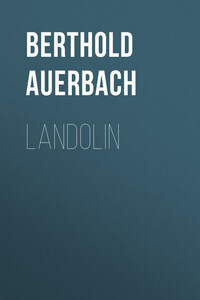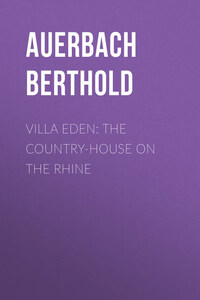The spring has come again to the hills and valleys of our home. The day awakes, a breeze moves strongly through the forest, as if its task were to carry away the lingering night; the birds begin to twitter, and here and there an early lark utters his note. Among the pine-trees, with their fresh green needles, a whispering and rustling is heard. The sun has risen above the mountaintop, and shines upon the valley; the fields and meadows are glittering with dew. From the cherry-trees comes a stream of fragrance, and the hawthorn hedges that blossomed in the night are rejoicing in the first sunbeams, which penetrate to the very heart of each floweret.
Down in the valley, where the logmen's rafts are floating rapidly-down by the saw-mill, where the water dashes over the wheel, and the saw sounds shrill-a young man with white forehead and sunburnt cheeks opens a window, looks out, and nods gayly, as if greeting the awakening day. Presently he appears on the doorstep; he opens his arms wide, as if to embrace something; he smiles, as though looking at a happy, loved face. Taking his soldier's cap from his head, and holding it in his hand, he leaves the house; his step is firm, his bearing erect, and sincere honesty and candor look from his eyes. He goes through the meadows toward the forest-crowned hill, not stopping till he reaches its summit. Pausing there, he looks far into the distance, where a column of smoke ascends to the cloudless sky.
"Good morning, Thoma! Are you still sleeping? Awake! our own day is here!" he said in a deep, manly voice.
And now he joyously bounded down the hill, but soon moderated his step, and sang a yodel until the birds joined with him, and the echo repeated the song. Before long he reached the house; by the door stood his father, scattering bread crumbs to the chickens.
"Good morning, father!" cried the young man. The father, a tall, thin man, looked up with surprise, and answered:
"What, up already, Anton? Where have you been?"
"I? where? Everywhere. In heaven, and in this beautiful world below. O father! it has often seemed to me that I should not live to see this day; that I should die before it came, or that something else would happen. But now the day is here. And such a day!"
The old man drew the palm of his hand twice, three times, over his mouth; for he would have liked to say: "Your mother was just so, so faint-hearted, and again so confident;" but he kept back the words; he would not mar his son's happiness; and at last he said:
"Yes, yes, so it is; that's what it is to be young. Tell me, Anton, were you so uneasy in the war, and so-?"
"No, father, that was quite another thing. Father, I'm afraid you are not entirely satisfied with Thoma."
"It's true, I'm not in love with her, as you are."
"No, but that's not all."
"There's nothing else, but for me she is almost too-"
"Too rich, you mean."
"I didn't mean that. No girl is too rich for an honest lad. I only meant she is too beautiful. Yes, laugh if you choose; but a wife as beautiful as she, is a troublesome possession. I think, however, it will come out all right; she certainly seems more like her mother than like Landolin. To be sure, she has some of his pride, but I hope not his ungovernable temper. In old stories we read of wicked giants; Landolin might have been one of them. It's well that we live in other times."
"But, father, you make too much of this; my Thoma-"
"Yes, yes, she has her mother's good disposition. I have been thinking it over, and I believe that, all told, I have been fifteen times at Rotterdam. There are no such violent men as Landolin in Holland."
"Father, perhaps it's because they have no mountain streams in Holland, only quiet canals."
"Well, well! Is there anything that the young people nowadays do not know all about? However, I did not mean to say anything bad of Thoma."
"That you can never do, father. There is one thing about her that will please you especially; an untruth has never escaped her lips, and never will."
"The world doesn't set much store by that now, but it's a great thing, after all. But enough of this. You are a man that can be master. I have only said this that your mind might be prepared. Enough now. It is a glorious day, thank God!"
"Yes, glorious indeed," replied Anton; but he did not mean the weather, for to-day was to take place, at the spring fair in the city, the betrothal of the miller's son, Anton, with Thoma (Thomasia), the daughter of the farmer and former bailiff, Landolin of Reutershöfen.













